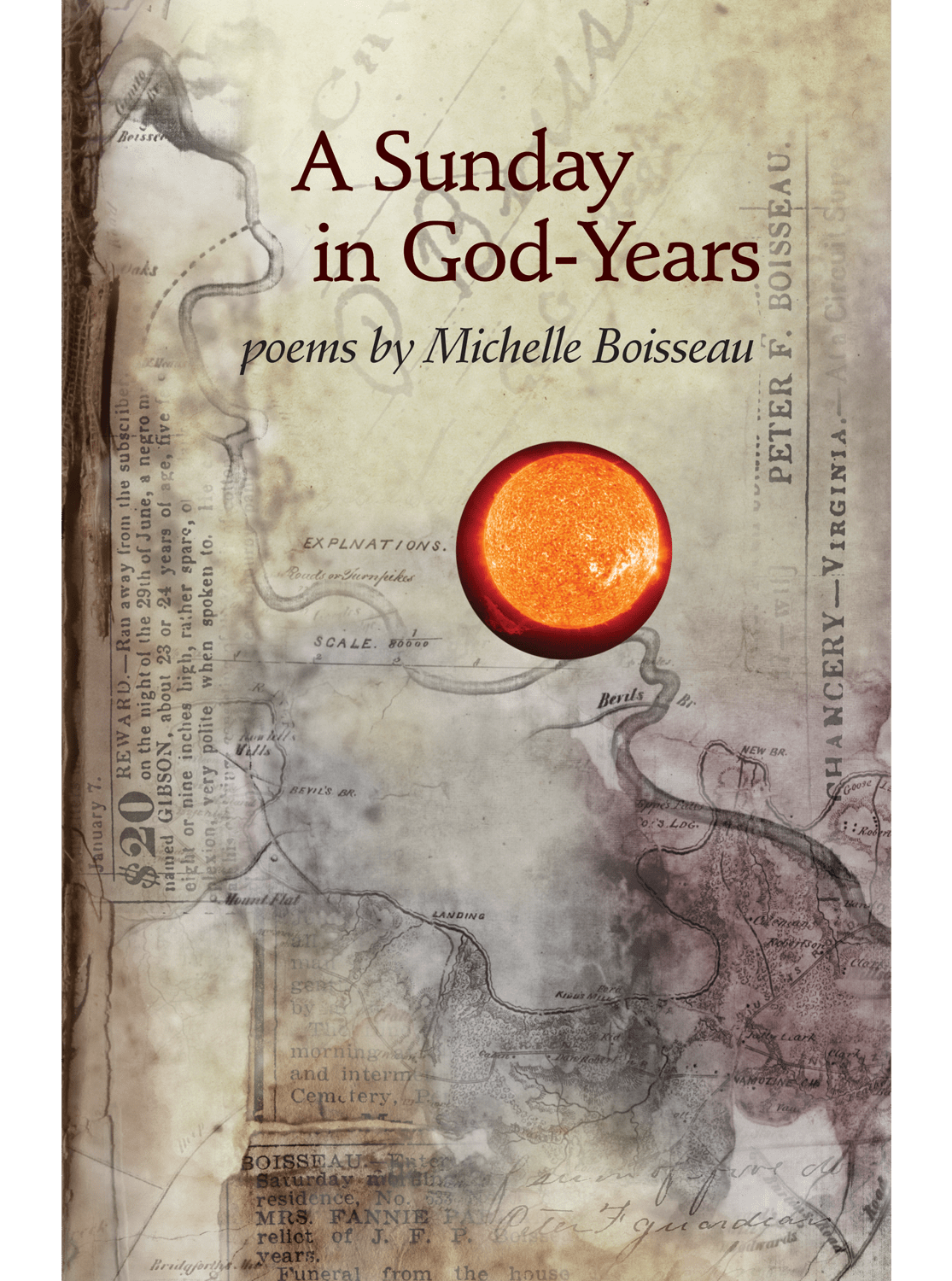A Sunday in God-Years takes its title from the notion that if we consider ourselves inside the long stretch of geologic time, human history happens in the blink of God’s eye as he rolls over during a Sunday nap. The book is centered around the long poem “A Reckoning” made up of fifteen shorter poems/sections (some sections are documents like wills and runaway slave notices). This long poem tries to reckon and recognize the sticky webs that bind the heirs of those who were slave holders (like the Boisseaus) and of those who were held as slaves.
“A Reckoning” builds the context for the rest of the book which, among other things, looks through the metaphors from geology to confront the historic and personal: Boisseau’s paternal ancestors fled religious persecution in France in 1685 and soon after their arrival in Virginia became entangled in slave ownership. When one looks on human history through the lens of geologic time, when one shifts the scale from the now and near to the distant, and takes a sky-perch, like God, some fascinating things begins to happens. Looking down on us from a satellite, from a conjectural place in deeper spaces from which our cameras have never looked, or from a moment long before humans ventured from trees, human history is thrillingly diminished and immediate human compassion becomes essential as air.
Michelle Boisseau was the author of several previous books of poetry, including Trembling Air, a PEN USA finalist, Understory, winner of the Morse Prize, and her university textbook, Writing Poems, initiated by the late Robert Wallace and co-edited most recently with her colleague Hadara Bar-Nadav. Boisseau was a Guggenheim fellow and received two fellowships from the National Endowment for the Arts. Prior to her untimely death in 2017, she taught in the MFA program at the University of Missouri-Kansas City. She was an associate editor for BkMk Press and a contributing editor of New Letters magazine.
“A Sunday in God-Years is a fantastic book. Boisseau has composed a suite of historical poems set at the intersection of personal and collective life, a book in which private grief and public sorrow are different aspects of a single legacy, a legacy that’s both a privileged burden and a burdensome privilege, encompassing heart wrenching intimacy and cultural nightmare, the beauty of nature and the fragility of family bonds. In every line on every page of this beautiful and ambitious book, the present comprehends the past ‘the way the sidewalk burns hours after / the sun’s gone down.’ Unsentimental, stunningly alive in sound as well as sense, compassionate, unflinchingly honest, A Sunday in God-Years is a flat out wonderful book, one of the best I’ve read in years.”
—Alan Shapiro, author of Old War: Poems
“Even a ‘ragged chunk of limestone’ opens up expanses of geological, historical, and familial time in the artful hands of Michelle Boisseau, who revisits her slave-owning ancestry for a reckoning. . . . Her poems are a unique blend of sensuality, rue, fresh insight, engaging candor, anguish, wicked humor, taut lyricism and a pungent dash of caustic.”
—Eleanor Wilner, author of The Girl with Bees in Her Hair
“The title of this splendid book reflects the tonal complexity of these richly layered poems. . . . Boisseau sounds like nobody else and her vision demands our attention.”
—Mark Jarman, author of Epistles: Poems

Adopted at: George Mason University
Course: ENGH 608, Research and Poetry
Course Description: Various sections offer work in fiction, poetry, and nonfiction, each focusing in different ways on the practices and the craft development of writers. Numerous writing assignments mixed with reading followed by careful analytical and craft discussions
Professor: Susan Tichey
Term: Fall 2014


